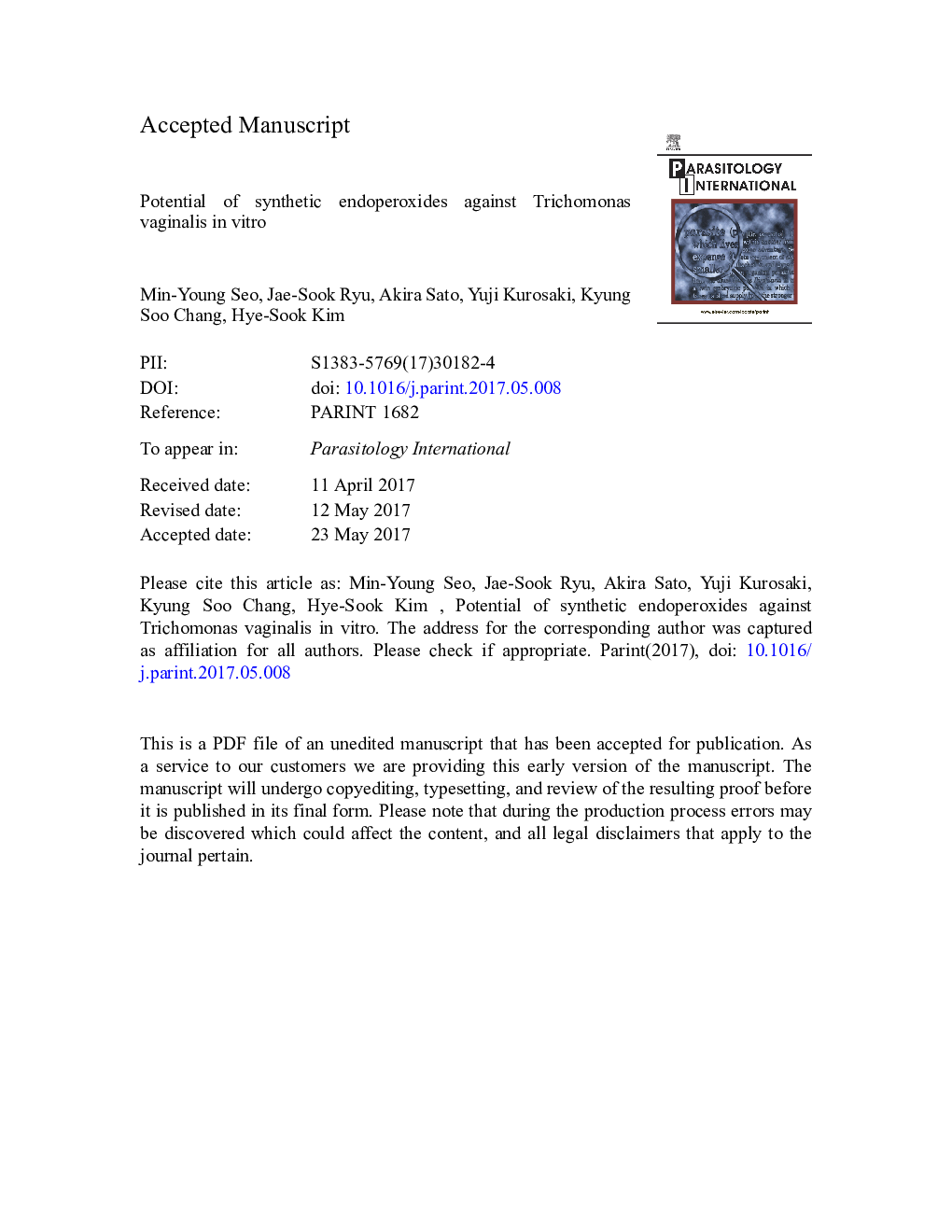| Article ID | Journal | Published Year | Pages | File Type |
|---|---|---|---|---|
| 5674231 | Parasitology International | 2017 | 15 Pages |
Abstract
Metronidazole is well known for medicine against Trichomonas vaginalis infection, but it has side effects though it is effective, and especially because reports of metronidazole-tolerant species are increasing, the development of new medicine is being required. Here, we noticed the killing effects of endoperoxide compounds, N-89 and N-251 as new antimalarial drug candidates, on T. vaginalis and searched the possibility of development of new medicine. We added each of metronidazole, artemisinin, and two of new endoperoxides (N-89 and N-251) to metronidazole-resistant and -sensitive species and compared its anti-trichomonal efficacy. For metronidazole, IC50 value, 50% of killing concentration for T. vaginalis, was very low for metronidazole-sensitive isolates (11.7 to 22.8 μM), but was high for metronidazole-resistant ones (182.9 to 730.4 μM). The IC50 values of N-89 and N-251 were 41.0 to 60.0 μM, and 82.0 to 300.0 μM for metronidazole-sensitive and -resistant isolates, respectively. In conclusion, we found the endoperoxides, N-89 and N-251, have anti-trichomonal effect against metronidazole-resistant T. vaginalis as well as metronidazole-sensitive ones. These results indicate that the anti-trichomonal effects for our endoperoxides are equivalent or better in metronidazole-resistant T. vaginalis in comparison to metronidazole.
Keywords
Related Topics
Life Sciences
Immunology and Microbiology
Parasitology
Authors
Min-Young Seo, Jae-Sook Ryu, Akira Sato, Yuji Kurosaki, Kyung-Soo Chang, Hye-Sook Kim,
